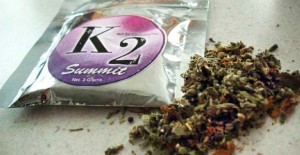Healy, Jack, and Kirk Johnson. “Next gold rush: legal marijuana feeds entrepreneurs’ dreams.” nytimes.com, 19 July 2014 Web. 19 July 2015
Jack H, Is a news reporter for the New York Times, and has reported on a variety of topics. The other author in this article is Kirk Johnson. Kirk J, is the New York Times Seattle Bureau Chief, just like his partner in this article Kirk also has reported on multiple world wide topics. Just as the headline says, there is a boom in the marijuana legalization industry which is becoming a widely known investment opportunity.
With these writers working for the New York Times they have a more biased opinion towards the benefit of marijuana to the economy, because of their more business orientated view.To open the topic the authors talk about how marijuana is sweeping the nations “entrepreneurs and workers, investors and hucksters from across the country.” Leaving their secure jobs they have in their home towns to venture out in the states of Colorado and Washington to have a chance to get in to marijuana fast growing industry. Proving the fact that marijuana is the new gold rush of the 21 first century. Meaning there will be many opportunities for state and the nations economy to flourish.
They then state that ” Marijuana now legal for medical use in 23 states and Washington, D.C., and full legalization heading to the ballot in Alaska and Oregon, the size of the noncriminal marijuana industry is expected to grow to about $2.6 billion this year from about $1.5 billion last year.” So not only is pot helping in the economy aspect but also in the medical field . Most doctors tend to not believe in the use of weed because of their political stand point mostly from a conservative out look. Yet they can not look away from the facts. The use of medicinal marijuana does improve the well being of patients and have better effects than most prescribed drug medicines. With more and more states legalizing the medical use of marijuana we can only expect for the other states to follow suit.
The authors then say that ” The deck was stacked in the favor of richer corporate players. With banks still so leery of lending in the industry… financing choices for smaller entrepreneurs like him are few.” So also appealing to the smaller view point of first time business owners they show that they are getting over run by the big companies taking money from the smaller communities. which could be a bad thing for the economy as well having only the one percent gaining from marijuana and not all of us. Yes, bringing money to the economy, but is it to the right part?
This article and its information is very beneficial to my viewpoint because it provides a different aspect to the use of marijuana and its help to the economy. Showing that there are some benefits of the legalization of marijuana. Hopefully, this will show some insight to my peers and let them see the other side to legalization other than getting high and having fun. This article could also help in my peers arguments and debates over the drug.


